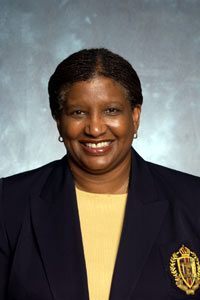The Right to Violent Video Games
 This week, the U.S. Supreme Court struck down a California law banning the sale of violent video games to children. In Brown v. Entertainment Merchants Association, 564 U.S. 1 (2011), the Court held that the First Amendment right to free speech protects the video games. As I predicted last November in a blog post on the oral argument in this case, Justice Scalia did not favor upholding the law, and indeed he wrote the majority opinion, which was joined by Justices Kennedy, Ginsburg, Sotomayor, and Kagan. Justice Alito and Chief Justice Roberts wrote a separate opinion, concurring in the judgment, while only Justices Thomas and Breyer dissented.
This week, the U.S. Supreme Court struck down a California law banning the sale of violent video games to children. In Brown v. Entertainment Merchants Association, 564 U.S. 1 (2011), the Court held that the First Amendment right to free speech protects the video games. As I predicted last November in a blog post on the oral argument in this case, Justice Scalia did not favor upholding the law, and indeed he wrote the majority opinion, which was joined by Justices Kennedy, Ginsburg, Sotomayor, and Kagan. Justice Alito and Chief Justice Roberts wrote a separate opinion, concurring in the judgment, while only Justices Thomas and Breyer dissented.
So what’s to like – or at least protect – about violent video games? The opinion is clear that video games are protected by the First Amendment. Although the Court notes that the Free Speech Clause exists primarily “to protect discourse on public matters,” it has long been “recognized that it is difficult to distinguish politics from entertainment, and dangerous to try.” The Court notes that there are plenty of examples of political commentary or even propaganda to be found in fiction. The Court goes on to state that last term’s opinion in United States v. Stevens controls. Stevens struck down a statute that criminalized the creation, sale, or possession of specified types of depiction of animal cruelty, and Scalia summarized the holding thusly: “new categories of unprotected speech may not be added to the list by a legislature that concludes certain speech is too harmful to be tolerated.” (564 U.S. at 3) Here, the California legislature tried to characterize the regulation of violent video games as dealing with a type of obscenity, and the majority states that violence is different from obscenity, and therefore it is irrelevant that Ginsberg v. New York allowed the state to apply an age-adjusted standard for its restriction on the sale of obscene materials to minors. The Court says that California tried “to create a wholly new category of content-based regulation that is permissible only for speech directed at children.” “That,” says the Court “is unprecedented and mistaken.” (564 U.S. at 7)

